Assembly creation
Understand the basics
Assemblies allow administrators to configure components inside a long-lasting space, with defined members. To start creating an assembly, when on the assembly list, click the "New assembly" button at the top right of the page.
The assembly creation form is divided into different sections that are detailed in the sections below.
Once you create an assembly, you can see all the assembly configurations available in the secondary navigation panel:
-
About this assembly (Here you can access and edit all the fields from the creation form.)
Configuration
General information
This section allows an admin to provide general information about the assembly: title, URL, and description.

| Field | Type | Description | Visibility |
|---|---|---|---|
Title |
Required |
Title of the assembly: "General Committee" or "neighborhood city council" for example. |
Visible in the card of the assembly on the homepage, the assemblies index, the navigation, and the "Hero image and CTA" landing page block. |
Subtitle |
Required |
Subtitle of the assembly. |
Visible in the "Hero image and CTA" landing page block. |
Order position |
Required |
Determines the order of the assembly when displayed in the processes index or homepage. |
N/A |
URL slug |
Required |
URL slugs are used to generate the URLs that point to this process. Only accepts letters, numbers and dashes, and must start with a letter. |
Visible in the URL of the assembly, for example https://example.org/assemblies/city_coucil. |
Hashtag |
Optional |
Hashtag redirecting to the X social network. |
Visible in the "Hero image and CTA" landing page block. |
Short description |
Required |
A short explanation of what your assembly is about. |
Visible in the "Main data" landing page block. |
Description |
Required |
A long explanation of what your assembly is about. |
Visible in the "Main data" landing page block. |
Purpose of action |
Optional |
The explanation of the assembly’s goals. |
Visible in the "Main data" landing page block. |
Composition |
Optional |
Who composes the assembly. |
Visible in the "Main data" landing page block. |
Internal organisation |
Optional |
How the assembly is organized. |
Visible in the "Main data" landing page block. |
Announcement |
Optional |
The text you enter here is shown to the user right below the process information. |
Visible in the "Announcement" landing page block. |
Duration
This section allows to provide information about the assembly’s important dates.
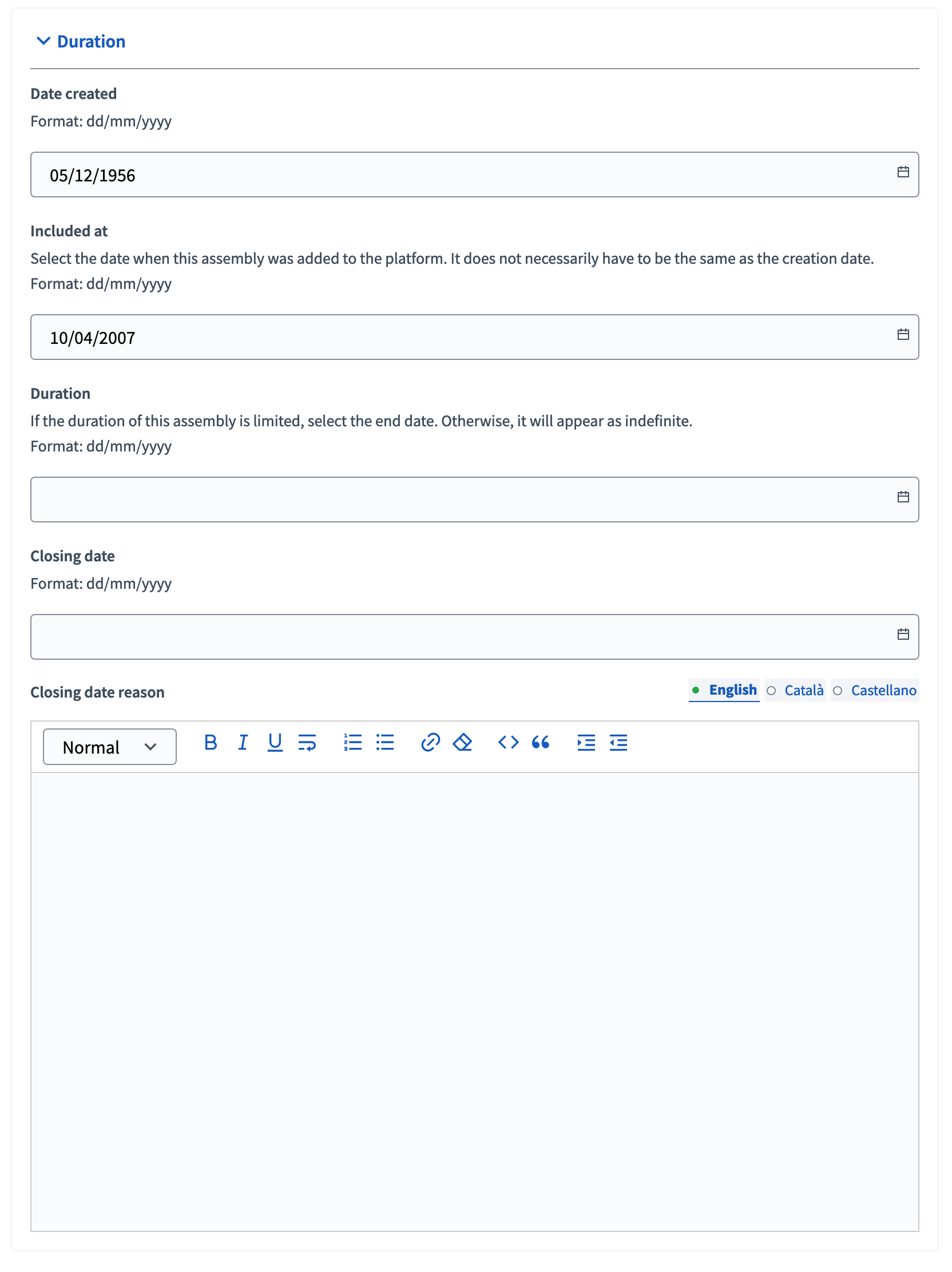
| Field | Type | Description | Visibility |
|---|---|---|---|
Date created |
Optional |
When this assembly was created. You have a calendar widget to choose the day. Expected format: dd/mm/yyyy. |
Visible in the "Dates metadata" landing page block. |
Included at |
Optional |
The date when this assembly was added to the instance. It does not necessarily have to be the same as the creation date. Expected format: dd/mm/yyyy. |
Visible in the "Dates metadata" landing page block. |
Duration |
Optional |
If the duration of this assembly is limited, select the end date. Otherwise, it appears as indefinite. Expected format: dd/mm/yyyy. |
Visible in the "Type and duration" landing page block. |
Closing date |
Optional |
When this assembly closed. Expected format: dd/mm/yyyy. |
Visible in the "Dates metadata" landing page block. |
Closing date reason |
Optional |
Why this assembly closed. |
Not displayed on the landing page. |
Images
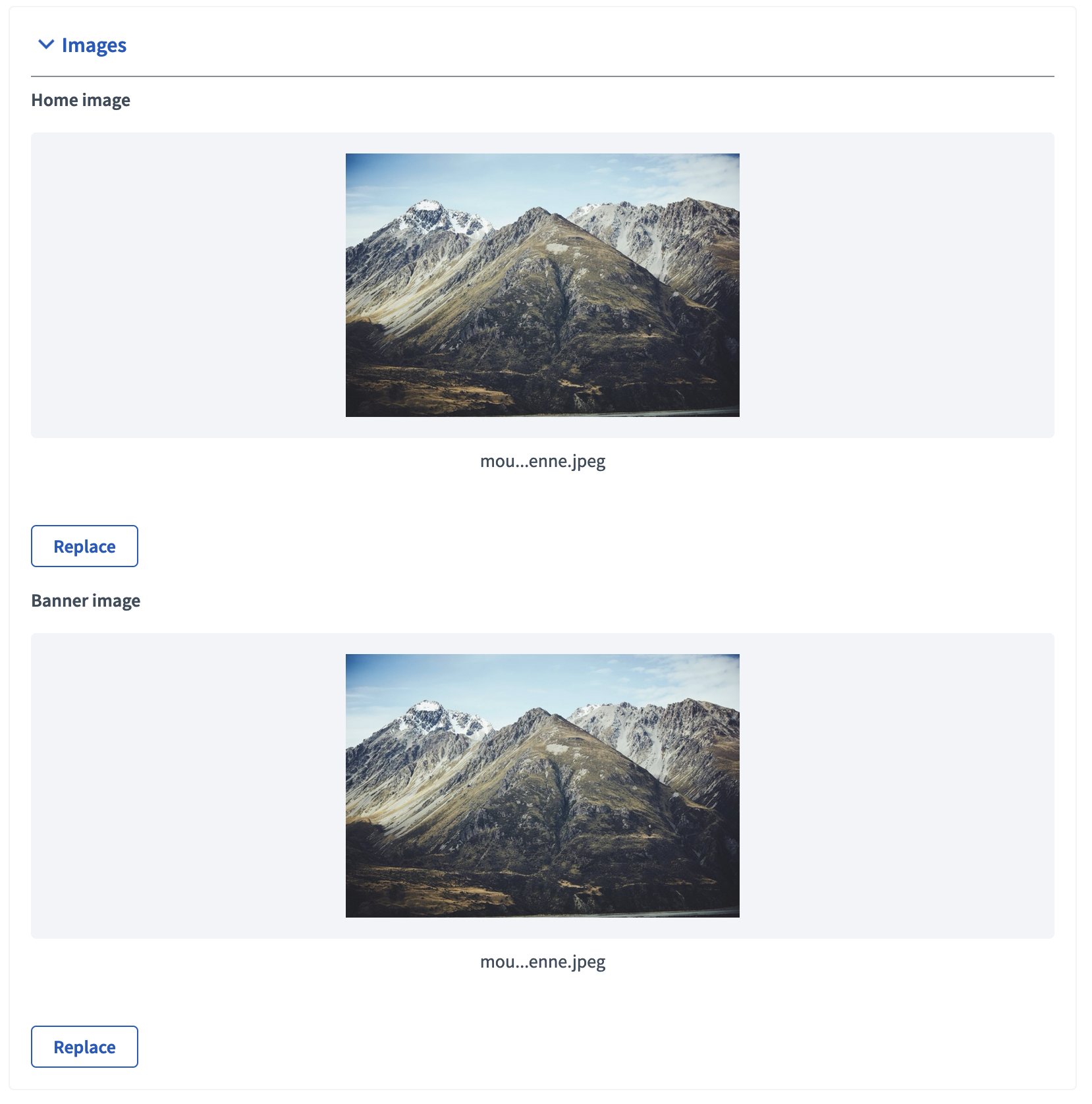
| Field | Type | Description |
|---|---|---|
Home image |
Optional |
Image used in presentation cards of this process. Guidance for file: Has to be an image or a document. For images, landscape images are preferred, as the service crops the image. Maximum file size: 10 MB |
Banner image |
Deprecated |
Use Hero image and CTA content block on the landing page instead. |
Filters
This section determines the filters available in the assembly, in the different components. Filters can then be enabled and configured in each components.
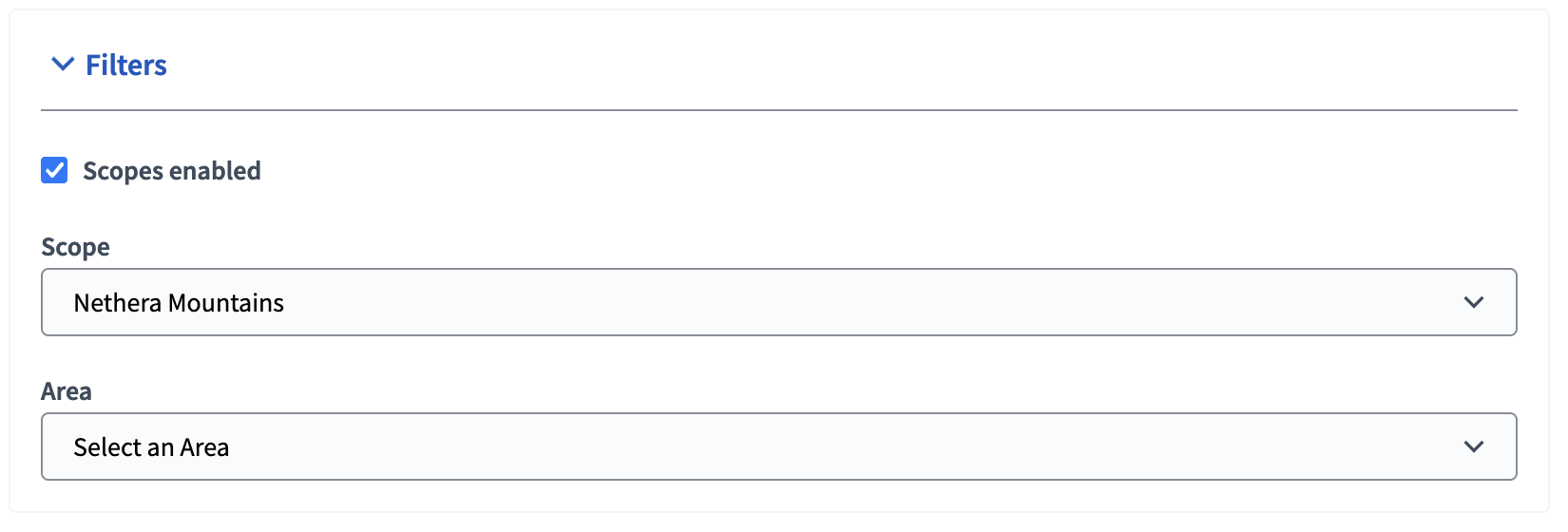
| Field | Type | Description |
|---|---|---|
Scopes enabled |
Optional |
Check if you want to have Scopes filtering in this assembly. |
Scope |
Optional |
Which Scopes this assembly belongs to. |
Area |
Optional |
Which Areas this assembly belongs to. |
Metadata
This section allows to provide meta information about the assembly.
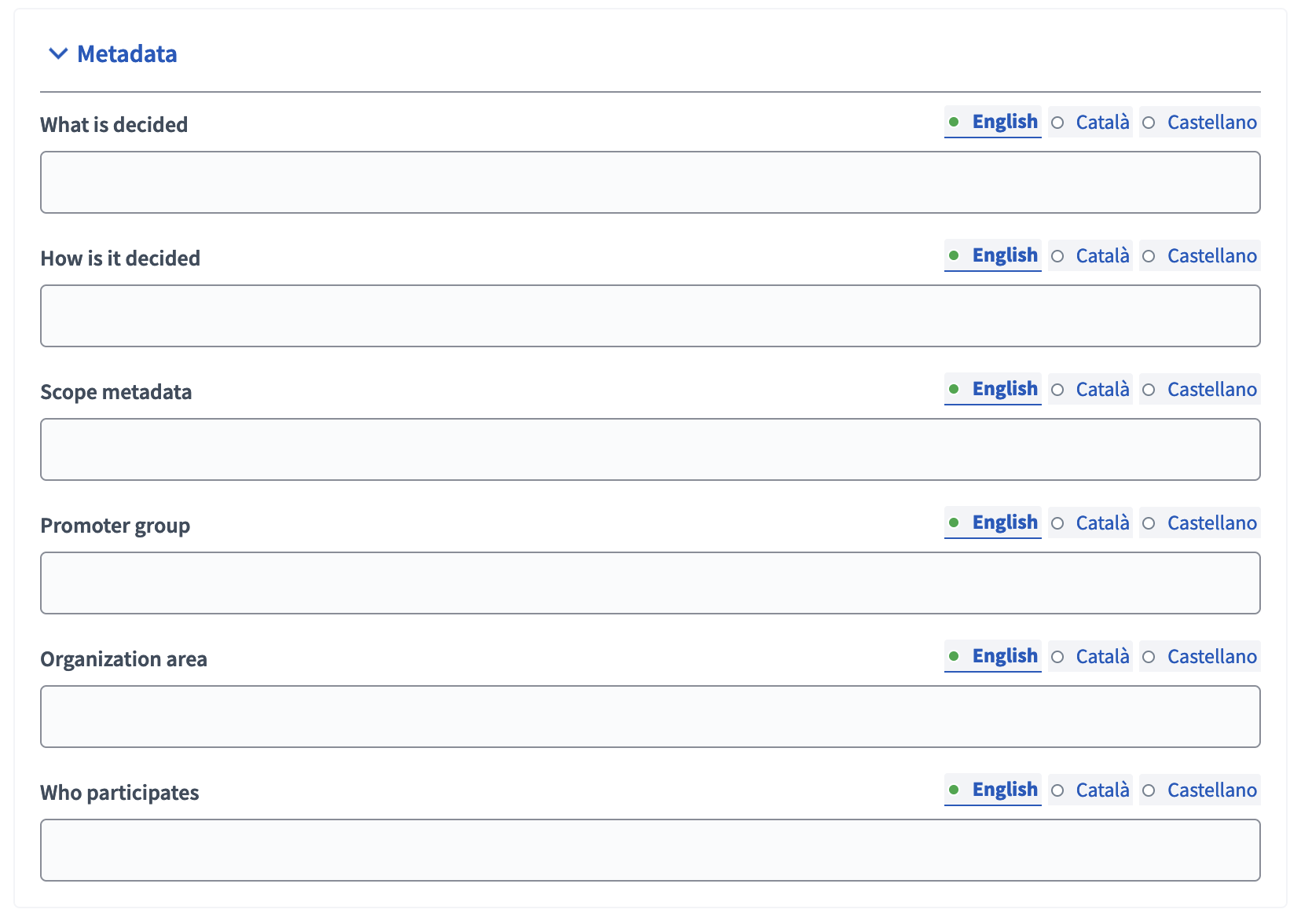
| Field | Type | Description |
|---|---|---|
What is decided |
Optional |
The issue of the assembly; the object of what is decided. |
How is it decided |
Optional |
The decision making process inside the assembly. |
Scope metadata |
Optional |
Metadata on the assembly scope, if relevant. |
Promoter group |
Optional |
If a specific group is at the origin of the assembly, like a city direction, an association committee, etc. |
Organization area |
Optional |
The organization domain or category, if relevant. |
Who participates |
Optional |
Who are the authorized participants that can participate to the assembly. |
Visibility
This section allows administrators to configure the process placement in the different pages and its publicity.
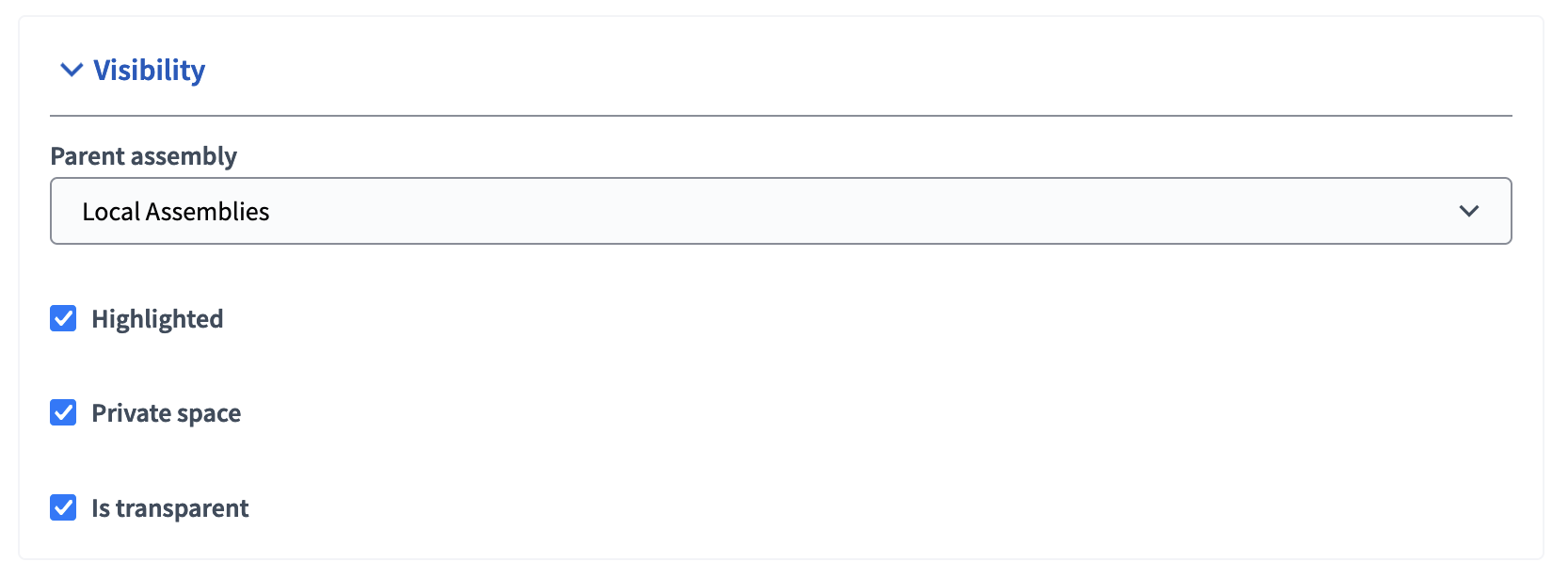
| Field | Type | Description |
|---|---|---|
Parent assembly |
Optional |
To which other assemblies this assembly belongs. Assemblies can be nested inside one another. |
Highlighted |
Optional |
Check if you want the assembly to have more visibility in the Assemblies public list. It’s also visible in the "Highlighted Assemblies" Content Block in the Homepage configuration. |
Private space |
Optional |
Check if this assembly should only be accessible by Private Participants. |
Is transparent |
Optional |
Check if this assembly is private but should be visible to all the participants. This means that other participants or visitors can see it but they can’t participate in it. |
Other
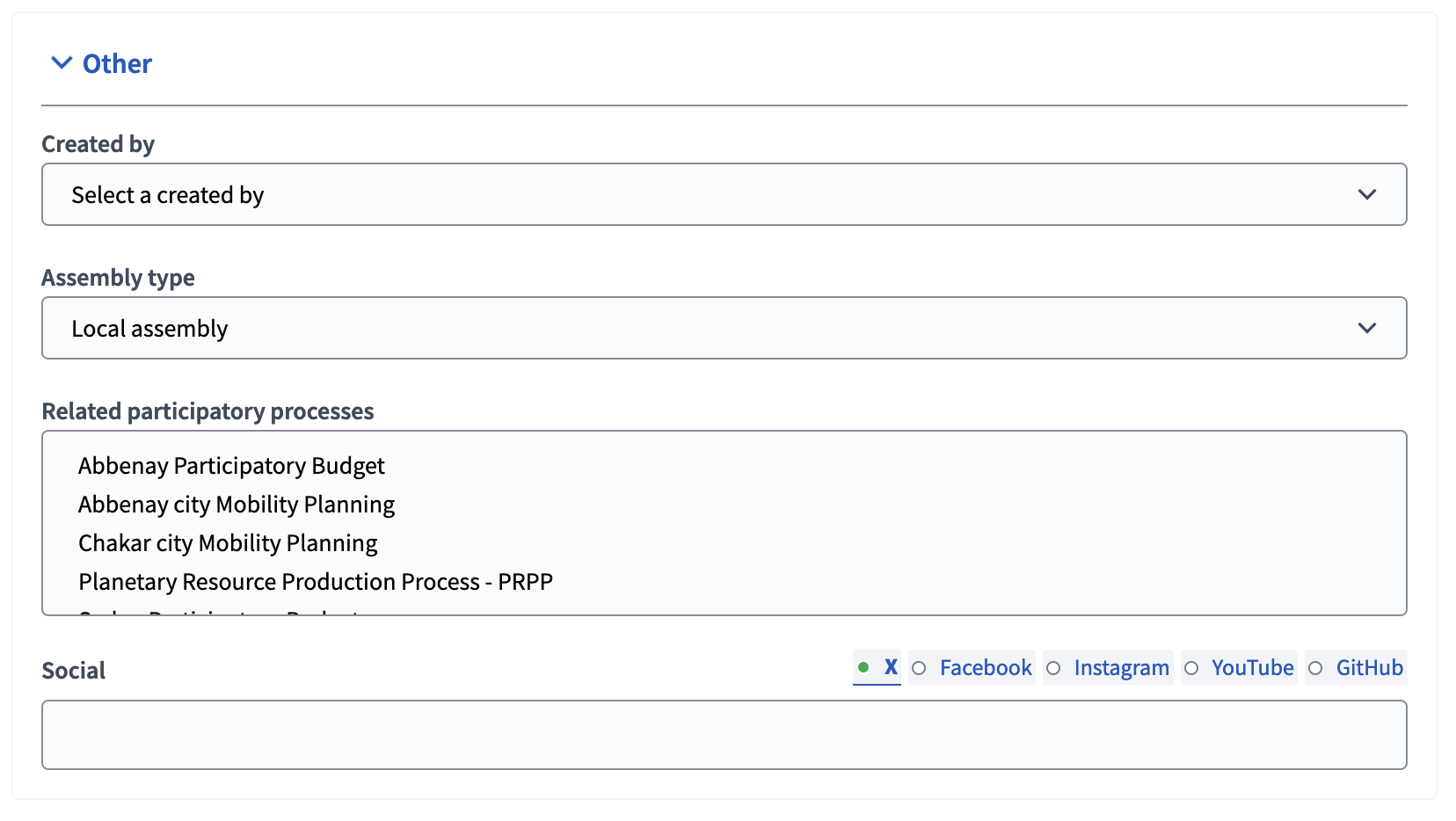
| Field | Type | Description |
|---|---|---|
Created by |
Optional |
Choose "City Council", "Public", or "Other" if you want to specify the name of the organization that created this assembly. |
Assembly type |
Optional |
Which Assembly type is related to this assembly. |
Related participatory processes |
Optional |
Select other participatory processes related to this assembly. |
Social |
Optional |
Which social networks profile this assembly has. Can be X, Facebook, Instagram, YouTube, and/or GitHub. |